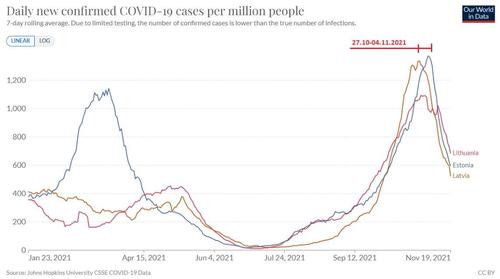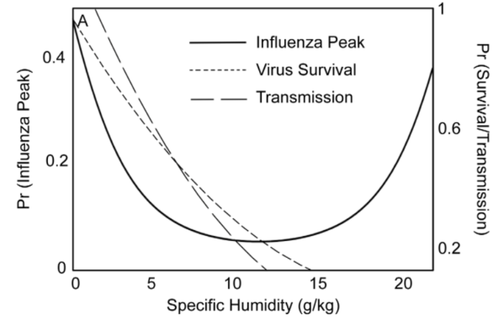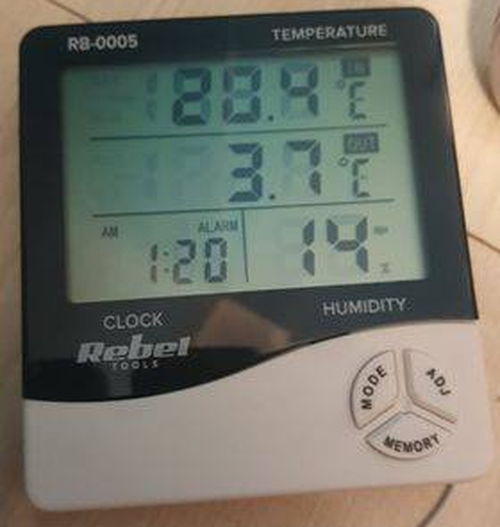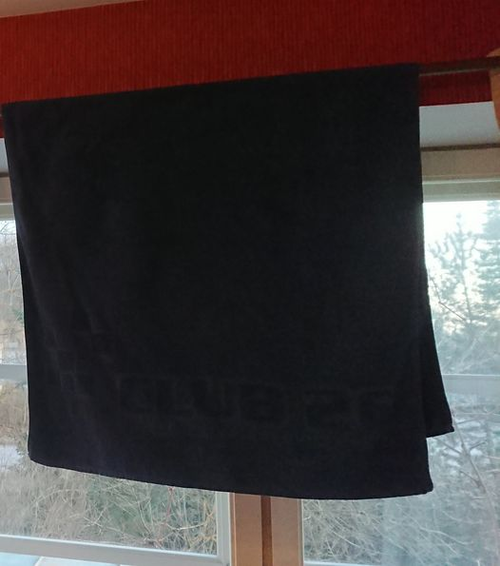A Theory As To Why COVID Cases Started Skyrocketing In Central Europe Last Month
As the scientific community continues the search for patterns related to Covid – why some people become ‘long haulers’ vs others, for example – an interesting theory has emerged as to why cases began to spike in Central Europe starting in mid-October.
According to Twitter user @kbarve, the scientific community may want to look at humidity as it relates to the surge. Keep reading for a breakdown:
2/ Nothing significant happened on Oct 10-13. But the nights turned cool and heating was needed everywhere overnight from Oct 9.
— Kaur Parve (@kparve) November 21, 2021
4/ The air arriving to the lungs should contain 35 g/kg of water. In summer, the air contained about 10 g/kg and the epithelium had to add 25 g/kg. From October 9 on, 20% more water was needed from the epithelium overnight
— Kaur Parve (@kparve) November 21, 2021
Continued via Threadreader App
The air arriving to the lungs should contain 35 g/kg of water. In summer, the air contained about 10 g/kg and the epithelium had to add 25 g/kg. From October 9 on, 20% more water was needed from the epithelium overnight
20% increase in any burden is tough even for a short period. Replace a 75 g racquet by a 90 g one and ask a good badminton player to play his standard play. He will need a rest very soon or be broken. Epithelium would also need a rest but it can’t. Mucus covering the upper respiratory epithelium is responsible for moisturizing the inhaled air, acting as a barrier between the environment and the epithelial cells. The mucosal microbiome also turns the inhaled viral particles harmless.
When absolute humidity drops, the water supply to the epithelium should be increased but do we know how fast such change can take place? And is there a limit to the water supply? How many have no idea of the importance of mucosal hydration of the air at all? In the winter 2020/21, Estonia had two major drops of absolute humidity. From average 8 g/kg to average 5 g/kg on Oct 14-20, triggering the rapid increase in infection. Average humidity then gradually decreased to average 4 g/kg by December, population acclimatized…
… until the humidity dropped to below 2.5 g/kg for three consecutive weeks in February. Vulnerability increased among younger population then, another wave of infection was triggered, and the hospitalizations were taken to the capacity limit of 700.
The waves of COVID-19 have broken when the absolute humidity has increased and not dropped back below customization level for a while. It happened so in the spring 2020, in the spring 2021, and also in the autumn 2021 in all Baltic countries simultaneously.
People in moderate climate have been suffering from infectious diseases from every autumn till spring and the epidemiological pattern is very similar each year. Diseases start with the beginning of the school and peaks in the second half of each winter. Since the emergence of centralized heating, the problem of indoor humidity has only become worse. Modern HVAC systems are aimed at supplying fresh air at low energy cost but these systems are still failing to address indoor humidity and maintain its healthy level.
It has been long known that the incidence of viral diseases is higher in very dry and very wet air, i.e. in nordic winter with and in tropical heat, both causing body to dehydrate. (Fig from Tamerius, Shaman et al. 2013)
The pending problem of inadequate indoor climate from autumn till spring must be solved by engineering means considering human in its full complexity. No human has by any reason deserved to spend hours at below 30% relative humidity.
The school environment detected in December 2020 during the mandatory increased ventilation is absolutely criminal. It is worth considering the possibility that the recommended intense ventilation might not improve the epidemiological situation at all but even make it worse.
Mankind has been chasing the virus for two years now and not yet recognized that humans and their internal ecosystems have evolved to manage all inhaled viruses and their consequences.
The frontline to protect each individual from viral infection and disease are mucosal microbes who are just unable to perform when the individual has chosen to, be unwillingly, dry up their natural environment and expose the mucosal cells to all possible pathogens. It makes no sense to assume that any intervention other than water could compensate for the chronical dehydration from dry indoor environment in cool season, inadequate water intake (eg in nursery homes), or excessive sweating in hot summer.
Meanwhile when engineers keep themselves busy solving the problem of dry indoor air, hanging wet towels can provide massive, immediate relief to your mucosal microbiome at almost no cost.
Tyler Durden
Mon, 11/22/2021 – 17:20
via ZeroHedge News https://ift.tt/30RSMr7 Tyler Durden




